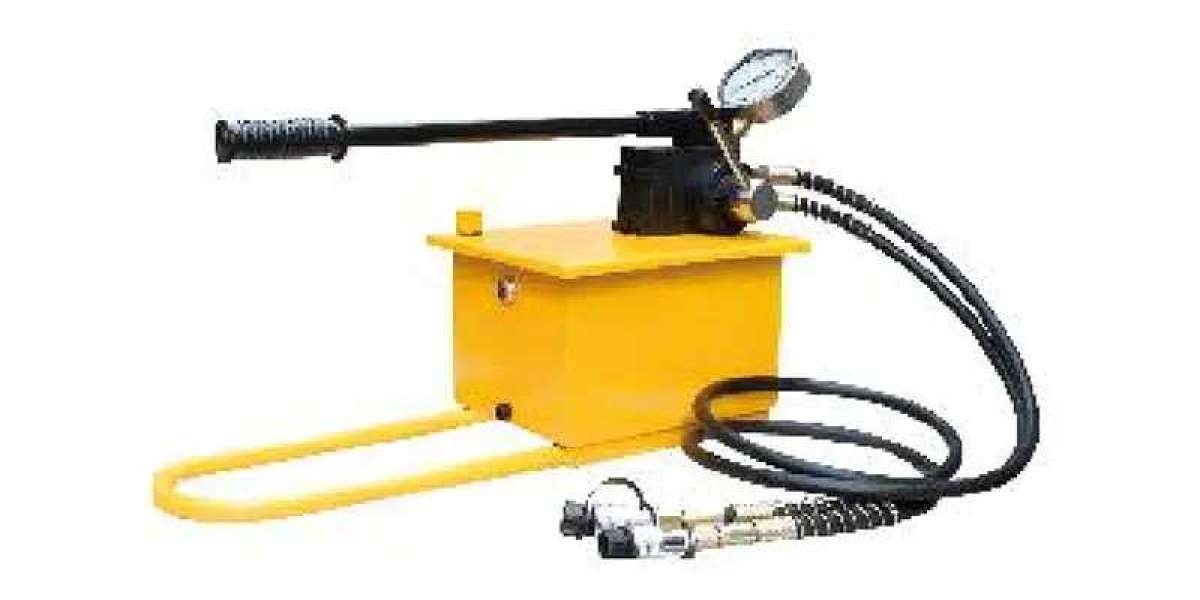In industrial settings, efficiency and reliability are often determined by the quality of the equipment in use. Among these essential components, the Hydraulic Pump plays a vital role. Whether for construction, automotive, aerospace, or manufacturing applications, hydraulic pumps serve as the backbone of numerous operations, ensuring seamless performance across various tasks.
The Core Functionality of Hydraulic Pumps
Hydraulic pumps operate by converting mechanical energy into hydraulic energy, creating the flow required to transmit power within a hydraulic system. This process enables these systems to perform heavy lifting, precise motion control, and other demanding tasks with remarkable consistency. The adaptability of hydraulic pumps makes them indispensable in both small-scale operations and large industrial setups.
Types of Hydraulic Pumps Available
Manufacturers now offer a broad spectrum of hydraulic pumps, catering to diverse requirements. Options range from manual hand-operated models to advanced electric and gasoline-powered versions. For example, hand-operated pumps like the CFP and CP series provide reliable solutions for projects that require portability and precision. Meanwhile, electric hydraulic pumps, such as the 1.5KW Solenoid Valve Single Circuit model, cater to applications where efficiency and power are paramount.
Each type of hydraulic pump comes with unique advantages, making it possible to tailor the solution to specific operational needs.
Key Benefits of Hydraulic Pumps
Versatility in Application
Hydraulic pumps are engineered to work across varied pressure ratings and flow capacities. This versatility allows businesses to use them in applications ranging from assembly lines to high-capacity lifting systems. By offering multiple configurations, manufacturers ensure that users can find pumps that meet precise operational demands.Efficiency-Driven Design
Modern hydraulic pumps are optimized for energy efficiency, delivering the required performance with minimal waste. By using cutting-edge engineering techniques, these pumps help reduce operational costs while maintaining productivity levels.Durable and Reliable Construction
The materials and manufacturing processes used in hydraulic pumps ensure long-term reliability. Features like corrosion resistance, robust seals, and high-pressure tolerance reduce wear and tear, enabling the equipment to withstand even the most challenging environments.Ease of Use and Maintenance
With user-friendly controls and clear operational guidelines, hydraulic pumps are designed to simplify workflows. Maintenance requirements are also kept minimal, with easy access to components for inspections and repairs. This helps operators focus on tasks without worrying about frequent downtime.Customization Opportunities
Industries have unique requirements, and hydraulic pump manufacturers recognize this need for customization. Buyers can choose from various models, add specific features, and configure specifications to create a pump that aligns perfectly with their applications.
Industrial Applications of Hydraulic Pumps
From powering construction equipment to operating machinery in aerospace factories, hydraulic pumps are fundamental to multiple sectors. For instance, rebar cutters and hydraulic hole openers rely on the power supplied by hydraulic pumps to execute precise and efficient operations. Similarly, tools like hydraulic cable shears improve safety and reduce labor costs in electrical and mechanical fields.
Emphasizing Safety and Sustainability
Hydraulic pumps come with built-in safety features to ensure secure operation, protecting both personnel and equipment. Moreover, many manufacturers are now prioritizing environmental considerations. Energy-efficient designs and recyclable components contribute to reducing the carbon footprint of these systems.
Partnering for Success
Choosing the right hydraulic pump can significantly enhance operational outcomes. By investing in high-quality, reliable models like the Hydraulic Pump, businesses can optimize performance, improve safety, and achieve better overall efficiency. Whether for small-scale use or heavy-duty industrial applications, the variety and adaptability of hydraulic pumps ensure they meet the diverse needs of modern industries.








